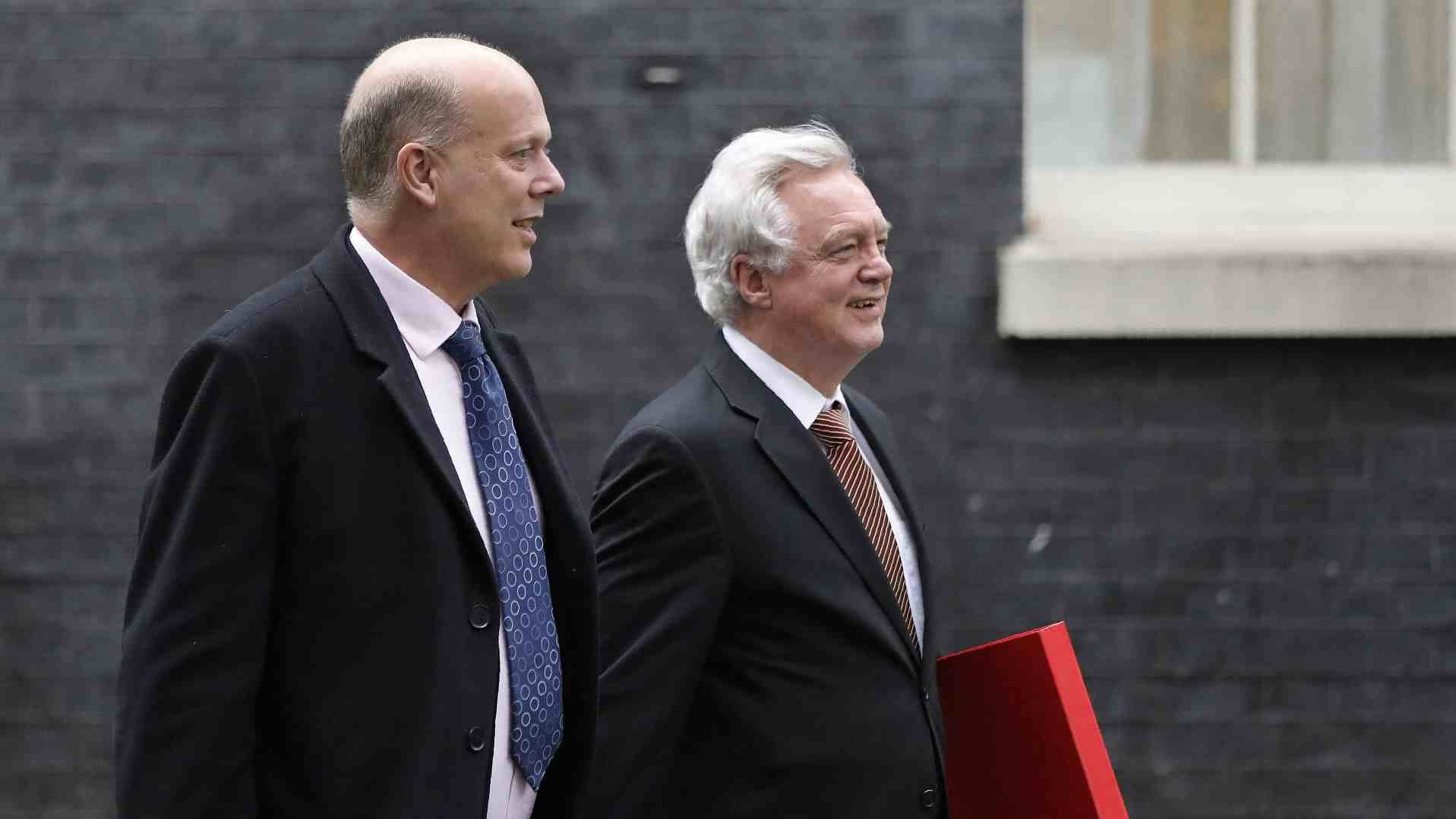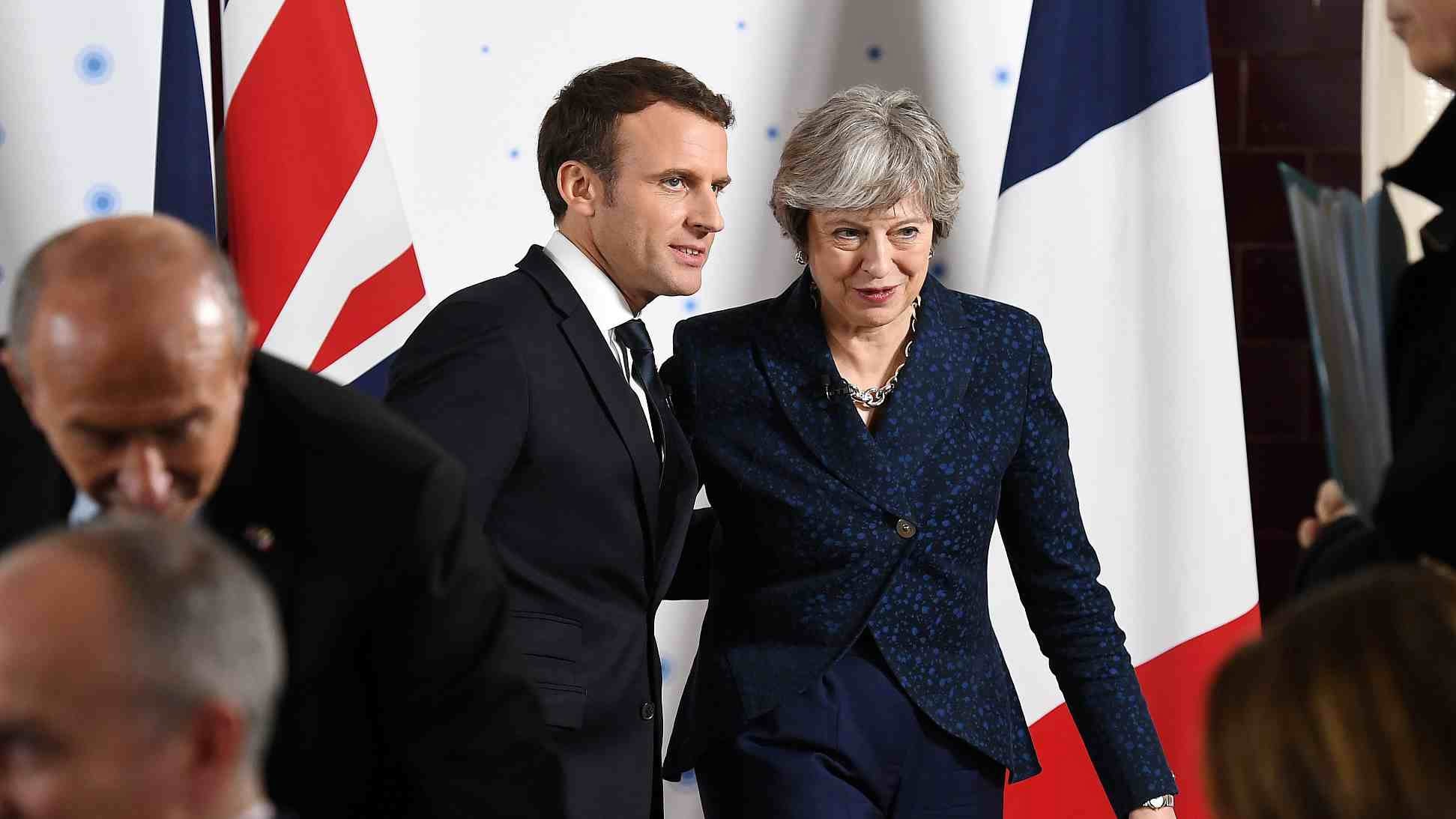
Politics
21:43, 24-Jan-2018
Brexit minister expects agreement on transition deal by end of March
CGTN

Brexit minister David Davis says he expects Britain and the European Union to agree to a transition deal on exiting the bloc by the end of March.
Asked by the Commons Brexit committee on Wednesday when the transition will be sorted, Davis said: "Oh I would expect it before the end of March. It wasn't said in terms, but that was pretty much intimated in the Commission's briefing documents in December."
He repeated the suggestion that the transition period should last about two years – but said he was flexible about its exact length.
Davis said no specific meetings to discuss the transition agreement had yet been scheduled, but stressed that staff from his department have been in Brussels in recent weeks meeting EU officials.
Davis said it would be a mistake to allow negotiations to carry on into the proposed transition period following Brexit.
"It would be unwise to get sucked into a negotiation during the transition period itself which is substantive, major," he said.

Britain's Transport Secretary Chris Grayling (L) and Britain's Secretary of State for Exiting the European Union (Brexit Minister) David Davis leave after attending the weekly cabinet meeting at number 10 Downing Street, in central London on Jan. 23, 2018. /VCG Photo
Britain's Transport Secretary Chris Grayling (L) and Britain's Secretary of State for Exiting the European Union (Brexit Minister) David Davis leave after attending the weekly cabinet meeting at number 10 Downing Street, in central London on Jan. 23, 2018. /VCG Photo
"Why? Because the balance of power in the negotiation alters. The aim then on the part of the commission would be to spin out the negotiation."
Britain is set to officially leave the EU in March 2019 but plans to abide by many of the EU’s rules for around two years to make the transition more orderly.
“If on 30 March 2019, the UK is subject to the European Court of Justice (ECJ), takes new rules relating to the single market and is paying into the European budget, are we not a vassal state?” asked MP Jacob Rees-Mogg.
Davis replied that in the future Britain would no longer be bound by the rules of membership of the EU’s custom union that are currently preventing it from negotiating trade deals with nations outside the EU.
However, he did admit that this issue could be a sticking point in upcoming negotiations on the transition deal and that Britain would probably have to abide by new rules handed down by the EU during the transition, without having a say on them.
He also revealed that Britain would continue paying into the EU during the transition period, potentially before all the details of the final deal have been agreed, but stressed that Britain would not pay to access the single market as part of the permanent deal.

Theresa May, UK prime minister, right, and Emmanuel Macron, France's president, walk off stage during a news conference following their UK-France summit meeting at the military academy in Sandhurst, UK, Jan. 18, 2018. /VCG Photo
Theresa May, UK prime minister, right, and Emmanuel Macron, France's president, walk off stage during a news conference following their UK-France summit meeting at the military academy in Sandhurst, UK, Jan. 18, 2018. /VCG Photo
Davis moved to calm fears of EU citizens living in Britain, saying they would be taken care of even if Britain crashed out without a deal.
“One way or another we will resolve this issue. I’d say to anyone who is worried about this issue: don’t be,” he said, calling it a “moral issue.”
Representatives from Britain’s Brexit department have been meeting with EU officials in Brussels in recent weeks, said Davis, but formal negotiations will restart in March.
British members of Parliament gave the green light last week to a landmark Brexit bill that will transfer four decades of EU rules onto the British statute books, although it faces a battle in passing the upper House of Lords.
Source(s): Reuters

SITEMAP
Copyright © 2018 CGTN. Beijing ICP prepared NO.16065310-3
Copyright © 2018 CGTN. Beijing ICP prepared NO.16065310-3